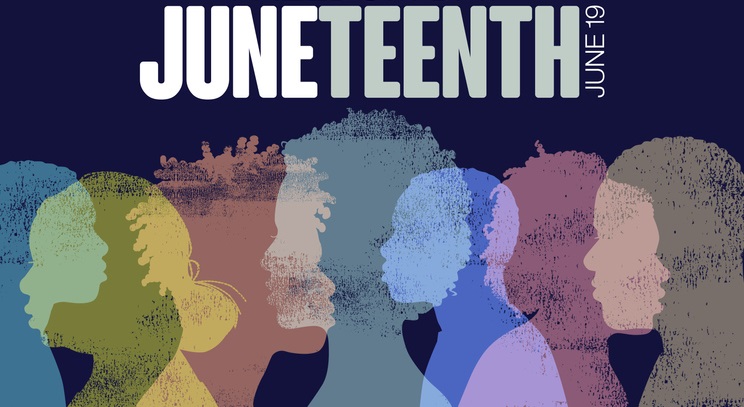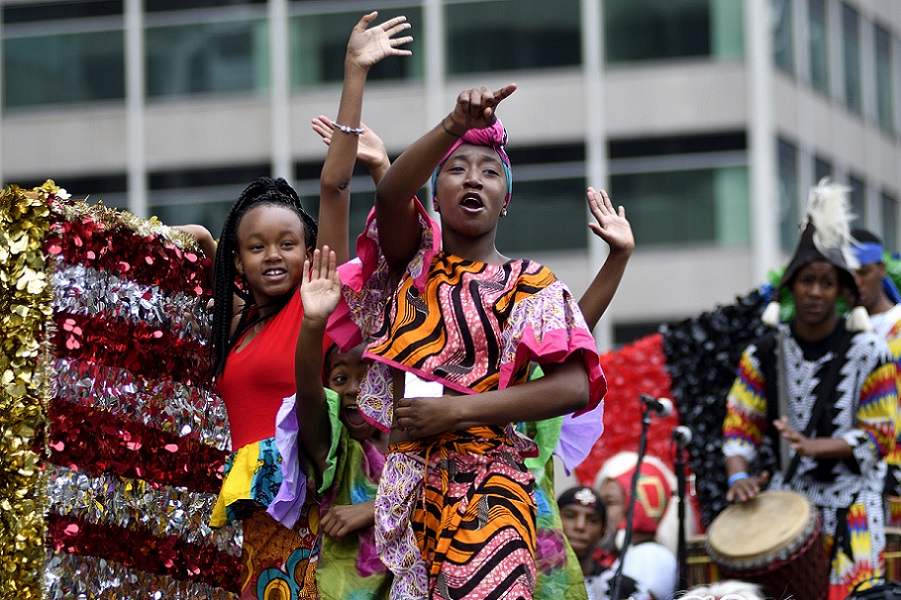Let Juneteenth Be a Time To Reflect, Celebrate and Act
My mother was born and raised in Terrell, TX, a small, hot-and-humid town about a four-hour drive from one of the last places in America where institutionalized slavery existed. The horrors of racial bigotry and oppression that maligned Black people in Terrell well after slavery ended was one of the main reasons she came to the Pacific Northwest for a better life and never looked back.
Juneteenth was scarcely mentioned in my Seattle home growing up; Texas was a place of memory and history, but it wasn’t a place my mother and father celebrated. Though Juneteenth’s current popularity has helped make it a federal holiday—a commemoration of the moment when the Union Army informed the enslaved people of Galveston, TX on June 19, 1865 that the Civil War had ended two months prior and the Emancipation Proclamation had freed them more than two years earlier—to my mother it was a reminder of a place she often chose not to visit, even vicariously, lest it open old wounds suffered while growing up Black in the South.
She’d say, “Gordy, I left Texas when I was 18 years old. I have no desire to go back to that culture or that heat.”
Whenever I hear of Juneteenth, I hear Dr. Martin Luther King Jr. saying, “Justice delayed is justice denied.” Abolishment of slavery by a wartime president righted an unjust wrong in American history. But life didn’t change for Black people. Abolishment of slavery did not equate to justice, as the nation’s attempts at Reconstruction failed miserably under the weight of white supremacy, leaving our nation with a different kind of racial oppression—one less pronounced but equal in its ability to relegate African Americans to second-class status.

As I consider Juneteenth as an adult, I’m proud that it’s celebrated not only in Galveston, TX, but as a federal holiday and a local holiday. It inspires me anytime institutions as powerful as federal, state and local governments recognize the challenges Black people in the United States went through. It’s a belated aspect of recognizing and honoring Black people’s contributions to the early development of what is now the United States of America. For me as Black person, it’s another reminder of the relevance and the power of the word “resilience.”
But as we celebrate Juneteenth, are we really wrestling with the reality of what it means for a people to be enslaved—and for generations to continue to experience racial oppression years after slavery’s end?
It is also worth noting that Juneteenth enforced only the Emancipation Proclamation, which ended slavery in Confederate states. In most Union states, slavery had been abolished by state law. The last two states to allow slavery were Delaware and Kentucky, which were Border states (slave-holding states that did not leave the Union during the Civil War). Slavery existed in those states until the ratification of the 13th Amendment to the U.S. Constitution that abolished the practice on Dec. 6, 1865. Slavery formally ended in 1866, when slave-holding Indigenous reservations that sided with the Confederacy abolished the practice.
Nowadays, Texas is scarcely the place my mother grew up. Yet racial hatred, fear, identity-based oppression and violence are still alive and well across this country. We are approaching 157 years from Juneteenth, yet just as those Black people in Galveston were furthest from freedom, we still see BIPOC groups across this nation and in our region furthest from resources, from equal treatment under the law, from equal housing, full voting rights, from opportunity.

Across the country, and in our region today, we must address the treatment BIPOC groups experience. Forces that deny opportunity and resources prevent equal treatment under the law, deny equal housing and voting rights must be reckoned with. This is what drives our racial equity work at United Way of King County. We are channeling more funding and resources to Black, Indigenous and other communities of color in our county. We advocate for policies and support work that transform systems that create or perpetuate inequities for people of color.
King County will be among many places across the country that will celebrate Juneteenth with festive celebrations, and that’s good. Yet I hope Juneteenth also inspires and motivates people to learn more about the institution of chattel slavery, not only in America, but the Transatlantic Slave Trade that forever altered the history of both Americas, the Caribbean and Africa. There is so much painful history for folks to learn and appreciate in hopes that we never, ever slip in that direction again. And we must understand the continuing challenges for Black folks who are fundamentally tied to an incredibly racist system that was designed around chattel slavery.
I hope Juneteenth also inspires and motivates people to learn more about the institution of chattel slavery, not only in America, but the Transatlantic Slave Trade that forever altered the history of both Americas, the Caribbean and Africa.
United Way President and CEO Gordon McHenry, Jr.
I hope people take time to celebrate Juneteenth by reading about it, gathering to celebrate it and reflecting on its place in American history. We must honor those who suffered under slavery, those who survived it and those who endure its aftermath. Moreover, Juneteenth is why we must be unyielding in our support of racial justice.


Comments